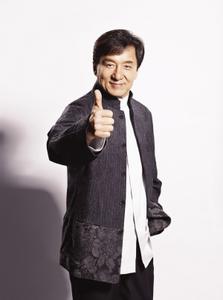Here comes the end of this semester, I’d like to post some “interesting” stuff here. Don’t get me wrong, I do love to write about education, and I’m passionate about it. Just at this moment, I really don’t feel like want to think or worry too much about it, because my brain really needs some rest, and I hope you can relax yours while reading this.
“I’m not a superman,” he says. Forty three years, more than one hundred movies, Jackie Chan has broken his nose three times, injured his hands countless times, and lost track of how many times he has injured his knees. Indeed, he is not a superman but a tough man—a tough man who pursues the realest scenes with perseverance, who bravely performs his own stunts with courage, and who cares about even strangers with a warm heart.
Began with being a stuntman in Bruce Lee’s films at the age of eighteen, Jackie has devoted his life to Chinese movie industry. Since he determined to be an actor like Buster Keaton, who was also known to perform his own stunts, Jackie has insisted on producing the realest scenes for the audience. Till now, he is sixty years old, but his spirit of perseverance has never changed after all these years. Early when he was filming a stunt in 1986’s Armor of God, he almost died from missing a branch and falling 40ft to the rocks below because he wasn’t satisfied with the first shot. However, he didn’t give up but kept performing dangerous stunts himself and keeps risking his life as well.
He always pursues the perfect effect when he’s performing in a movie, though he is just a vulnerable human being. But still, he has been brave enough to bring his audience the best stunt. There was one stunt that actually froze his blood—it took two weeks for him to ease his nervousness. But still, he ended up succeeding and even making it more dangerous and challenging. It was the climax of the movie Who Am I?, Jackie slid down a total of 21 stories of a building on its slanted profile that travels from the roof to the fourth floor at a 45-degree angle. However, he was not satisfied with sliding just on his posterior, so he tumbles and even stands up and walks down it before falling forward and sliding head-first.
He is shooting a TV show recently, in which people who practice Kongfu compete against each other to be his students. Even though he has never known anyone of them, he shows care and love for them, he is like the big old tree who is concerned about those little trees that are growing up.He is a compassionate man with a warm heart. Every time he sees a candidate do a dangerous stunt, he looks worried. Every time he is told about how much time and energy someone spent in practicing Kongfu, his eyes are moist. Every time he watches a candidate get hurt from an accident in the competition, he bursts into tears.
As time goes by, deep winkles smile and cry with him, and his perseverance, courage and compassion have been doing the same.When the accident happened to one of his cameramen a few month ago when they were filming his newest movie, Jackie jumped into the sea to save him without hesitation. The man died, he cried and got injuries too. He was so sad and said, “I wish I were a superman as my fans always say, so that I could save him.” Don’t blame yourself, Jackie, you’re not a superman but a tough man— a tough man with a soft heart. 









